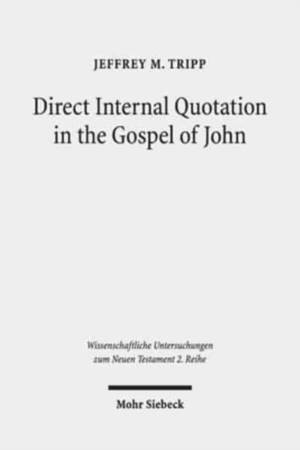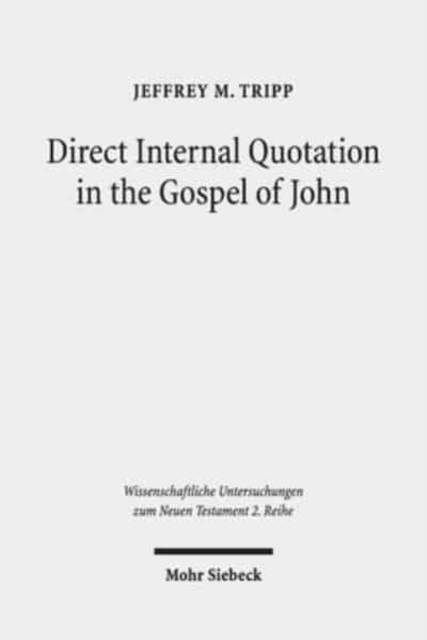
Bedankt voor het vertrouwen het afgelopen jaar! Om jou te bedanken bieden we GRATIS verzending (in België) aan op alles gedurende de hele maand januari.
- Afhalen na 1 uur in een winkel met voorraad
- In januari gratis thuislevering in België
- Ruim aanbod met 7 miljoen producten
Bedankt voor het vertrouwen het afgelopen jaar! Om jou te bedanken bieden we GRATIS verzending (in België) aan op alles gedurende de hele maand januari.
- Afhalen na 1 uur in een winkel met voorraad
- In januari gratis thuislevering in België
- Ruim aanbod met 7 miljoen producten
Zoeken
Omschrijving
Characters in the Gospel of John quote and re-quote each other frequently, almost excessively, yet their quotations are rarely literal. These characters (including Jesus and the narrator) make changes - some minor, some major - even when they re-quote important sayings of Jesus. Jeffrey M. Tripp examines this often overlooked feature of the Fourth Gospel in the contexts of first century pedagogy and literature, as well as early Christian tradition and practices. Attending to John's direct internal quotations reveals a text at play with its christological and eschatological language, teasing out the fullest extent of its meaning. The Gospel of John emerges as a theological narrative anchored in yet unbound by the ideas of the wider early Christian movement.
Specificaties
Betrokkenen
- Auteur(s):
- Uitgeverij:
Inhoud
- Aantal bladzijden:
- 323
- Taal:
- Engels
- Reeks:
- Reeksnummer:
- nr. 493
Eigenschappen
- Productcode (EAN):
- 9783161559563
- Verschijningsdatum:
- 1/08/2019
- Uitvoering:
- Paperback
- Formaat:
- Trade paperback (VS)
- Afmetingen:
- 157 mm x 231 mm
- Gewicht:
- 521 g

Alleen bij Standaard Boekhandel
+ 302 punten op je klantenkaart van Standaard Boekhandel
Beoordelingen
We publiceren alleen reviews die voldoen aan de voorwaarden voor reviews. Bekijk onze voorwaarden voor reviews.









